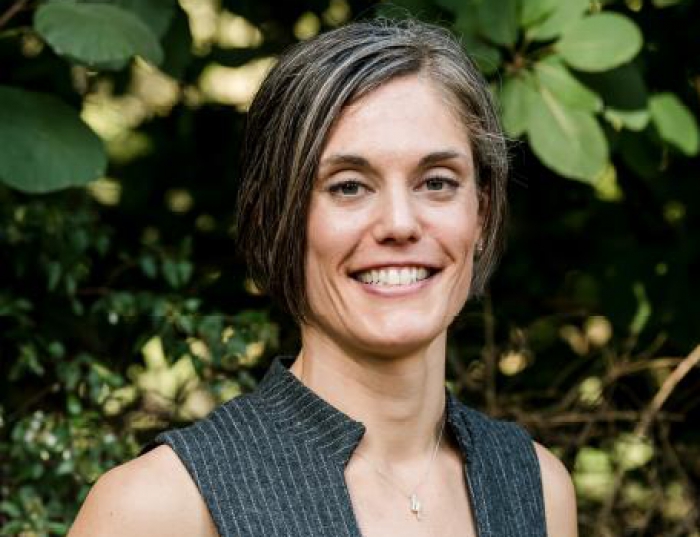People
Directors
View Profile
Erika E. Forbes, PhD
View Profile
David J. Kupfer, MD
View Profile
Alan F. Schatzberg, MD
Faculty
View Profile
Rebecca Ashare, PhD
View Profile
Melissa Brotman, PhD
View Profile
Enrico Castillo, MD, MSHPM
View Profile
Jay Fournier, PhD
View Profile
Ellen Frank, PhD
View Profile
Tina Goldstein, PhD
View Profile
Andrea Goldstein-Piekarski, PhD
View Profile
Ian Gotlib, PhD
View Profile
Dawn Ionescu, MD
View Profile
Ayana Jordan, MD, PhD
View Profile
Jordan F. Karp, MD
View Profile
Corey Keller, MD, PhD
View Profile
Carrie McAdams, MD, PhD
View Profile
Aoife O'Donovan, PhD
View Profile
Michael J. Ostacher, MD, MPH
View Profile
Mercedes Perez-Rodriguez, MD, PhD
View Profile
Noah S. Philip, MD
View Profile
Carolyn Rodriguez, MD, PhD
View Profile
Joshua Roffman, MD
View Profile
Andrea Schneider, JD
View Profile
Holly Swartz, MD
View Profile
Meredith Wallace, PhD
View Profile
Leanne Williams, PhD
View Profile
Nolan Williams, MD
View Profile
Daniel Wolf, MD, PhD
View Profile
Josh Woolley, MD, PhD
View Profile
Christina Mangurian, MD, MAS

Erika E. Forbes, PhD
Positions
- Professor of Psychiatry, Psychology, Pediatrics, and Clinical and Translational Science, Western Psychiatric Institute and Clinic, University of Pittsburgh School of Medicine, Pittsburgh, PA
Education & Training
- PhD, 2003, University of Pittsburgh, Psychology
Dr. Forbes' research addresses the regulation and dysregulation of positive affect and the processing of reward in childhood depression. Her current project involves a study of low activation of in reward-related brain areas, low subjective experience of positive affect in natural settings as measured by ecological momentary assessment, and the relationship of the fMRI-revealed brain activation to seeking and experiencing positive affects in natural settings.

David J. Kupfer, MD
Positions
- Thomas Detre Professor, Department of Psychiatry, University of Pittsburgh School of Medicine and Western Psychiatric Institute and Clinic
- Professor of Neuroscience and Clinical and Translational Science, University of Pittsburgh School of Medicine
Education & Training
- MD, 1965, Yale University, Medicine
David J. Kupfer, MD, Distinguished Professor Emeritus, Department of Psychiatry, University of Pittsburgh School of Medicine, received his bachlor's and MD degress from Yale University. Following completion of an internship, Dr. Kupfer continued his postrgraduate clinical and resarch training at the Yale New Haven Hospital and the National Institute of Mental Health (NIMH).
In 1970, he was appointed Assistant Professor of Psychiatry at yale University School of Medicine. Dr. Kupfer joined the faculty at the University of Pittsburgh in 1973. From 1983 and 2009, Dr. Kupfer served as Chair of the Department of Psychiatry at the University of Pittsburgh School of Medicine, and Director of Research at Western Psychiatric Institute and Clinic. Under Dr. Kupfer's direction, WPIC became one of the nation's preeminent university-based psychiatric research centers. A prolific writer, Dr. Kupfer has authored and co-authored a combination of more than 1,000 articles, books, and book chapters. Dr. Kupfer's own research focused primarily on long-term treatment strategies for recurrent mood disorders including both psychotherapeutic and pharmacologic treatments, the pathogenesis of depression, and the relationship between biomarkers and depression. He is internationally recognized for his role as Chair of the American Psychiatric Association Task Force for DSM-5. In recognition of his contributions to the field, Dr. Kupfer has been the recipient of numerous awards and honors including his 1990 election to the National Academy of Medicine.
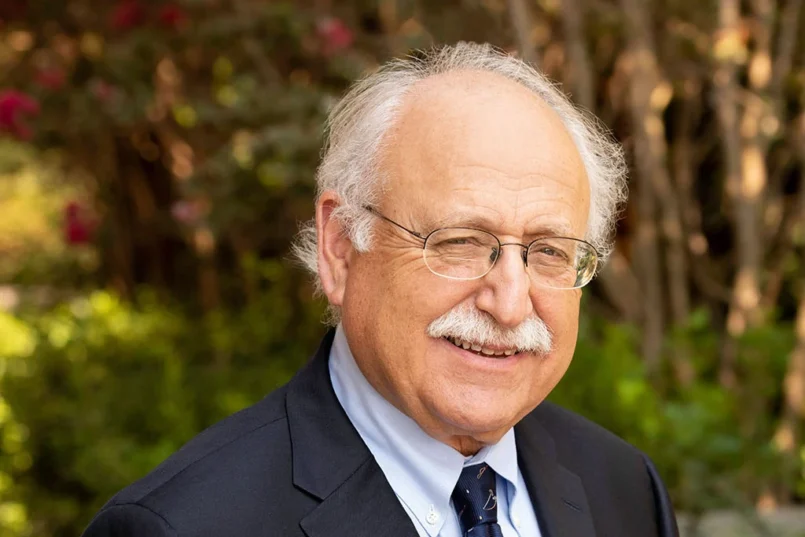
Alan F. Schatzberg, MD
Positions
- Kenneth T. Norris, Jr., Professor, Department of Psychiatry and Behavioral Sciences, Stanford University School of Medicine, Stanford, CA
Education & Training
- MD, 1968, New York University School of Medicine, Medicine
Dr. Schatzberg's research examines the biology and psychopharmacology of depressive disorders. Past studies include norepinephrine systems in depression as a means of subtyping, the biology of delusions in major depression, the clinical pharmacology of nondelusional depression with a focus on chronic depression, and the pharmacogenetics of antidepressant response. He was elected into the Institute of Medicine of the National Academy of Sciences in 2003, and he holds or has held co-editor, editorial board, or presidential positions with several journals and societies. From 1991 to 2010, he was the Chair of Psychiatry and Behavioral Sciences at Stanford University.

Melissa Brotman, PhD
Positions
- Principal Investigator, Neuroscience and Novel Therapeutics Unit (NNT), Emotion and Development Branch, NIMH Intramural Research program
Melissa A. Brotman, Ph.D., is the principal investigator of the Neuroscience and Novel Therapeutics Unit (NNT) in the Emotion and Development Branch at the National Institute of Mental Health (NIMH) Intramural Research Program (IRP). Dr. Brotman received her Ph.D. in clinical psychology from the University of Pennsylvania, where she specialized in cognitive behavioral therapy for mood and anxiety disorders. After completing her clinical internship at the Veterans Affairs Maryland Health Care System/University of Maryland-Baltimore, she completed post-doctoral training in neuroscience, focusing on functional magnetic resonance imaging (fMRI) and clinical phenotyping of severe irritability in youth. Currently, her neurodevelopmental, translational research integrates basic and clinical approaches to the study of mood disorders in children and adolescents. Specifically, she uses affective neuroscience techniques to understand the brain-based mechanisms underlying severe irritability in youth and leverages pathophysiological knowledge to guide the development of novel targeted interventions.Dr. Brotman is Principal Investigator on NIMH protocol 15-M-0182 examining two novel, mechanism-based treatments for severe irritability in youth: (1) a computer-based treatment, interpretation bias training (IBT) that targets face emotion processing; and (2) an exposure-based cognitive-behavioral research therapy. Recruitment for both studies is ongoing.
Dr. Brotman is a Member of the American College of Neuropsychopharmacology (ACNP) and Chair of the ACNP Membership Advisory Task Force. She has received multiple research awards, including the NIMH IRP Seymour S. Kety Memorial Training Award, Society of Biological Psychiatry Travel Award, ACNP Young Investigator Memorial Travel Award, and Career Development Institute Award. She was awarded a 2018 NIH Bench-to-Bedside grant, is a consultant on numerous extramural grants, and is on the Editorial Board of the Journal of Affective Disorders and PLOS ONE. Finally, mentoring is a focal aspect of her career, and her mentorship was recently recognized through the NIMH Outstanding Mentor Award.
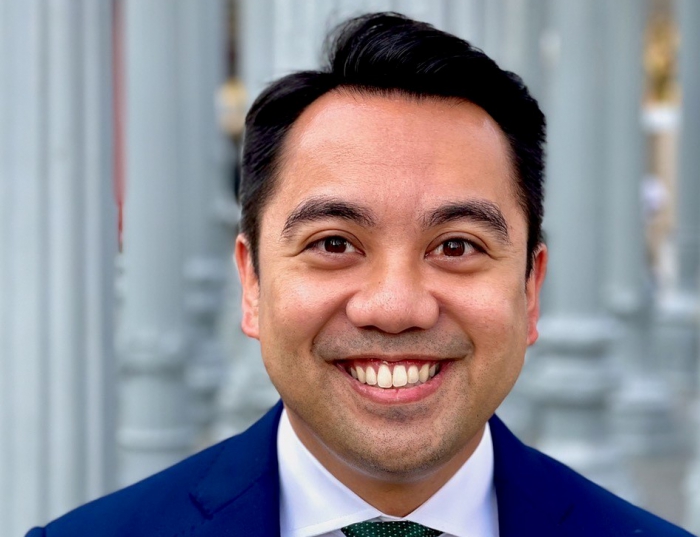
Enrico Castillo, MD, MSHPM
Positions
- Associate Professor of Clinical Psychiatry, University of California, Los Angeles
- Associate Vice Chair for Justice, Equity, Diversity, and Inclusion, UCLA Department of Psychiatry
- Core Faculty, UCLA Center for Social Medicine
- Affiliated Faculty, California Policy lab at UCLA
- Affiliated Faculty, UCLA Center for Community Engagement
Education & Training
- BA, University of Virginia (2005)
- MD, University of Pittsburgh (2010)
- Residency and Public Psychiatry Fellowship: Columbia University (2014, 2015)
- MS Health Policy and Management: University of California, Los Angeles (2016)
- Post-doctoral Research Fellowship: Robert Wood Johnson Foundation Clinical Scholars Program at UCLA (2017)
Dr. Enrico Castillo is an academic community psychiatrist, health services researcher, and medical educator in the UCLA Center for Social Medicine and the Associate Vice Chair for Justice, Equity, Diversity, and Inclusion in the UCLA Department of Psychiatry. His program of research focuses on enhancing the capacity of public systems to address health inequities through community-government-academic partnerships. In the roles of PI or Co-PI, he has secured over $1.9 million in research funding, and he has served on NIH and Department of Veterans Affairs scientific review committees. His research and educational work have been conducted in partnership with local, state, and national agencies and community organizations. He led a NIMH K23 project on the jail-to-homelessness pipeline experienced by individuals with serious mental illness. He serves in several national leadership roles in research and medical education, including the Mental Health Advisory Board of the Association of American Medical Colleges, and multiple positions in the American Psychiatric Association. He was one of three physician members of the second cohort of the New Voices Program of the National Academies of Sciences, Engineering, and Medicine. He is a member of the California State Council on Criminal Justice and Behavioral Health.

Jay Fournier, PhD
Positions
- Director, Mood and Anxiety Program
- Co-Director, Division of Cognition and Emotion
- Associate Professor, Department of Psychiatry & Behavioral Health
Education & Training
- PhD, University of Pennsylvania
Dr. Fournier is an associate professor in the Department of Psychiatry at the Ohio State University School of Medicine. He is a practicing clinical psychologist with an active research program in the cognitive affective neuroscience of personality and depression.
Dr. Fournier completed his undergraduate education in psychology and philosophy at Brandeis University, he earned his PhD in clinical psychology from the University of Pennsylvania, and he completed his clinical psychology internship at Western Psychiatric Institute and Clinic.
Dr. Fournier’s research focuses on identifying patient characteristics that are associated with differential response to treatments for depression, including placebo, antidepressant medications, and psychotherapy. In addition, his work investigates the neural and behavioral mechanisms through which those characteristics either facilitate or inhibit response to relevant treatments. As such, Dr. Fournier’s research bridges work in clinical interventions, mood disorders, personality, and neuroscience.

Ellen Frank, PhD
Positions
- Professor of Psychiatry and Psychology, Department of Psychiatry, University of Pittsburgh School of Medicine
- Director, Depression Prevention Program, Western Psychiatric Institute and Clinic, University of Pittsburgh Medical Center
Education & Training
- PhD, 1979, University of Pittsburgh, Clinical Psychology
Ellen Frank is Distinguished Professor Emeritus of Psychiatry at the University of Pittsburgh School of Medicine and Chief Clinical Research Officer of HealthRhythms, Inc., a mobile technology company developing smartphone-based behavioral monitoring for clinical trials and digital intervention platforms.
For more than 35 years, Dr. Frank’s work focused on a better understanding of mood disorders and their treatment. Her 1990 study of maintenance therapies in recurrent unipolar depression is considered a classic in the field. She and her colleagues subsequently demonstrated the preventive efficacy of interpersonal and social rhythm therapy (IPSRT), a psychosocial intervention originally developed for adult outpatients with bipolar I disorder and subsequently modified for a broader range of mood disorders, age groups and treatment settings. Since transitioning to emeritus status, Dr. Frank has focused her attention on the development and testing of smartphone-based digital biomarkers and therapeutic platforms based on the social rhythm regulation conceptual model.
An expert on mood disorders and their treatment, Dr. Frank has published more than 475 peer-review papers, in addition to over 100 book chapters and books. In 1999, Dr. Frank was elected to the National Academy of Medicine.
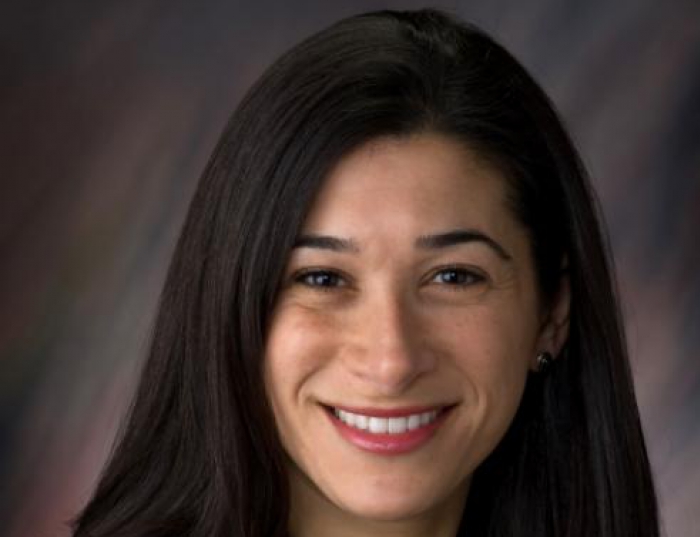
Tina Goldstein, PhD
Positions
- Associate Professor of Psychiatry and Psychology, University of Pittsburgh School of Medicine, Pittsburgh, PA
Education & Training
- PhD, University of Colorado, Boulder, CO

Andrea Goldstein-Piekarski, PhD
Positions
- Assistant Professor (Research), Department of Psychiatry and Behavioral Sciences, Stanford University School of Medicine
- Investigator, VISN21 Sierra-Pacific MIRECC at VA Palo Alto
Education & Training
- PhD, University of California, Berkeley, Psychology/Neuroscience
Dr. Goldstein-Piekarski directs the Computational Psychiatry, Neuroscience, and Sleep Laboratory (CoPsyN Sleep Lab) as an Assistant Professor in the Department of Psychiatry and Behavioral Sciences at Stanford University School of Medicine and PI within the Sierra-Pacific Mental Illness Research, Education and Clinical Center (MIRECC) at the Palo Alto VA. She received her PhD in 2014 at the University of California, Berkeley where she studied the consequences of sleep on emotional brain function. She then completed a Postdoctoral fellowship at Stanford focusing on understanding the brain basis of anxiety and depression.
As the director of the CoPsyN Sleep Lab she is developing a translational, interdisciplinary research program that combines human neuroimaging, high-density EEG sleep recording, and computational modeling to understand the neural mechanisms through which sleep disruption contributes to affective disorders, particularly depression, across the lifespan. The ultimate goals of this research are to (1) develop mechanistically-informed interventions that directly target aspects of sleep and brain function to prevent and treat affective disorders and (2) identify novel biomarkers which can identify which individuals are most likely to experience improved mood following targeted sleep interventions.
This work is currently supported by The KLS Foundation, a R01 from National Institute of Mental Health, and a R61 from the National Institute of Mental Health.

Ian Gotlib, PhD
Positions
- David Starr Jordan Professor, Department of Psychology, Stanford University
- Director of the Stanford Neurodevelopment, Affect, and Psychopathology (SNAP) Laboratory, Stanford University
Education & Training
- PhD, University of Waterloo, Clinical Psychology
Dr. Gotlib is the David Starr Jordan Professor, Director of the Stanford Neurodevelopment, Affect, and Psychopathology (SNAP) Laboratory, and a faculty member in the Neurosciences Graduate Program at Stanford University. From 2005-2010, Dr. Gotlib served as Senior Associate Dean for the Social Sciences, and he served as Chair of the Psychology Department at Stanford from 2012-2018.
In his research, Dr. Gotlib examines psychobiological factors that place individuals at increased risk for developing depression and engaging in suicidal behaviors, as well as processes that are protective in this context. More specifically, Dr. Gotlib examines neural, cognitive, social, endocrinological, and genetic factors in depressed individuals and applies findings from these investigations to the study of predictors of depression in children at risk for this disorder. In related projects, Dr. Gotlib is also examining the differential effects of early life stress on trajectories of neurodevelopment in boys and girls through puberty in an effort to explain the increased prevalence of depression and suicidal behaviors in girls in adolescence. Finally, Dr. Gotlib is extending this work to the study of brain function and structure, endocrine function, and behaviors in neonates and infants being raised in suboptimal environments.Dr. Gotlib’s research is supported largely by grants from the National Institutes of Health. He has also been funded by the National Health Research Development Program and the Medical Research Council of Canada, and leads an interdisciplinary team funded by PHIND at Stanford. Dr. Gotlib has received the Distinguished Investigator Award from the National Alliance for Research in Schizophrenia and Affective Disorders, the Joseph Zubin Award for lifetime research contributions to the understanding of psychopathology, the APA Award for Distinguished Scientific Contribution, the APS Distinguished Scientist Award, and a MERIT award from NIMH. He is a Fellow of the American Psychological Association, the Association for Psychological Science, and the American Psychopathological Association, and is Past President of the Society for Research in Psychopathology.

Dawn F. Ionescu, MD
Positions
Current Position
- Senior Director and Clinical Leader, Neuroscience Experimental Medicine, Janssen
Previous Positions
- Director, Neuroscience Clinical Development, JJIM
- Assistant Professor, Harvard Medical School
- Assistant in Psychiatry, Massachusetts General Hospital
Education & Training
- B.A., History and Philosophy of Science, University of Pittsburgh, 2004
- M.D., Penn State College of Medicine, 2009
- Psychiatry Residency (PGY-1 through PGY-3), The George Washington University School of Medicine & Health Sciences, 2009-2012
- Psychiatry Residency (PGY-4), National Institute of Mental Health, 2012-2013
- Clinical Research Fellowship, National Institute of Mental Health, 2013-2014

Ayana Jordan, MD, PhD
Positions
- Barbara Wilson Associate Professor of Psychiatry, NYU Langone Health
- Pillar Lead for Community Engagement in NYU Langone's Institute for Excellence in Health Equity
- Associate Professor in the Department of Population Health, NYU Langone Health
Education & Training
- MD/PhD, Albert Einstein College of Medicine of Yeshiva University (2011)
- MS, Albert Einstein College of Medicine of Yeshiva University (2006)
- BS, Hampton University (2001)

Jordan F. Karp, MD
Positions
- Chair, Psychiatry, the University of Arizona Health Sciences, College of Medicine
- Member of the Graduate Faculty, the University of Arizona Health Sciences, College of Medicine
- Professor, Psychiatry
Education & Training
- MD, 1998, University of Pittsburgh School of Medicine
- Psychiatry Residency, 2002, Columbia Presbyterian/New York State Psychiatric Institute
- Geriatric Psychiatry Fellowship, 2003, University of Pittsburgh Medical Center
Jordan Karp, MD, is the Department Chair, Professor of Psychiatry, and Medical Director for Behavioral Health Technology. He is an expert in the fields of geriatric psychiatry, depression treatment, and suicide prevention.
Prior to joining the University of Arizona, Dr. Karp served as a professor of psychiatry, anesthesiology, and clinical and translational science at the University of Pittsburgh School of Medicine, where he directed the Late-Life Depression Prevention and Treatment Research Program, served as Director of Medical Student Mental Health Services, and was program director for the geriatric psychiatry fellowship.
Dr. Karp has authored more than 140 peer reviewed publications and has been continuously funded by the National Institutes of Health (NIH), Patient Centered Outcomes Research Institute (PCORI), American Foundation for Suicide Prevention (AFSP), and the Brain and Behavior Research Foundation (BBRF) since 2006.
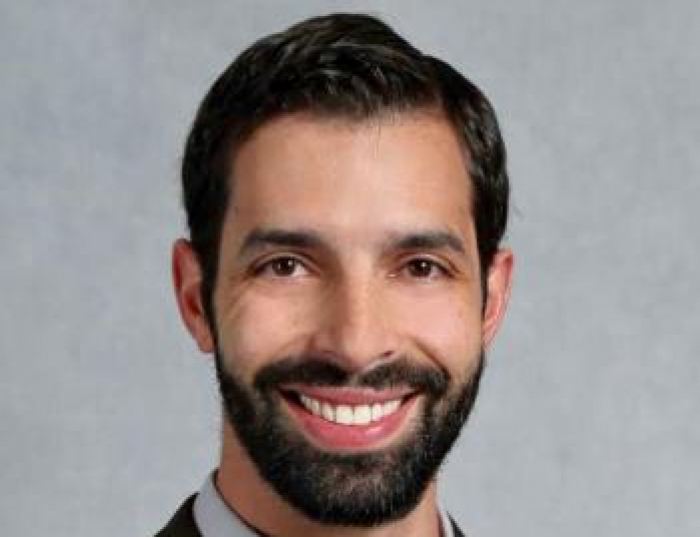
Corey Keller, MD, PhD
Faculty
Class of 2018
Stanford University
Dr. Keller is an Assistant Professor of Psychiatry and Behavioral Sciences at Stanford University and an Assistant Professor at the Veterans Affairs PaloAlto Health Care System (VAPAHCS). He is a member of Stanford Bio-X and the Wu Tsai Neurosciences Institute. Dr. Keller received his MD and PhD in neuroscience from the Medical Scientist Training Program at Albert Einstein College of Medicine. He completed his residency in psychiatry at Stanford University Medical Center focused on interventional psychiatry. Dr Keller has received several grants including the F31, T32, K23, DP5 Early Independence Award, SBIR, and R01 awards. He co-developed a fully automated non-invasive brain mapping technique used across industry and academia, and has run two clinical trials (NCT01829165 and NCT02843373) collecting over 1500 participants across ten clinical centers. Dr. Keller has extensive experience in the assessment and management of individuals with treatment-resistant depression. He has developed methodology for capturing the neurophysiology of human brain networks and the effect of stimulation through invasive and non-invasive electrophysiology.
The overarching goal of Dr. Keller’s Laboratory, the Laboratory for Personalized Neurotherapeutics (kellerlab.stanford.edu) is to improve brain stimulation treatment for neurological and psychiatric disease. His lab focuses on understanding the neural mechanisms of how brain stimulation technologies induce alter brain circuits in an effort to develop novel, personalized, and more effective brain stimulation treatments. His lab combines invasive and noninvasive human electrophysiology to answer these critical questions.

Carrie McAdams, MD, PhD
Positions
- Associate Professor of Psychiatry, UT Southwestern Medical Center, Dallas TX
Dr. Carrie McAdams is an Associate Professor of Psychiatry at UT Southwestern Medical Center. Dr. McAdams’ research is focused on the relationship between cognition and brain function. Her graduate work at Baylor College of Medicine and postdoctoral fellowship at Harvard Medical School examined how neuronal signaling was altered by visual attention in macaques. With the development of functional magnetic resonance imaging (MRI), she became excited about the potential of this technique to examine how cognitive processes contribute to mental illness. Focusing on brain function in eating disorders, she has identified differences in the neural circuitry involved in social and self-perception and related these differences to illness and recovery in anorexia nervosa.
Her current research examines the connections between biological and psychological aspects of eating disorders using functional neuroimaging. She has focused on understanding the neurodevelopmental changes related to identity formation and social cognition. These constructs are closely related to long-term psychotherapeutic interventions in eating disorders.

Aoife O'Donovan, PhD
Positions
- Associate Professor In Residence, Department of Psychiatry and Behavioral Sciences, UCSF
- Research Psychologist, San Francisco Veterans Affairs Healthcare System
Education & Training
- BA, University College Cork, Ireland
- MPsychSc, National University of Ireland, Galway
- PhD, University College Dublin, Ireland
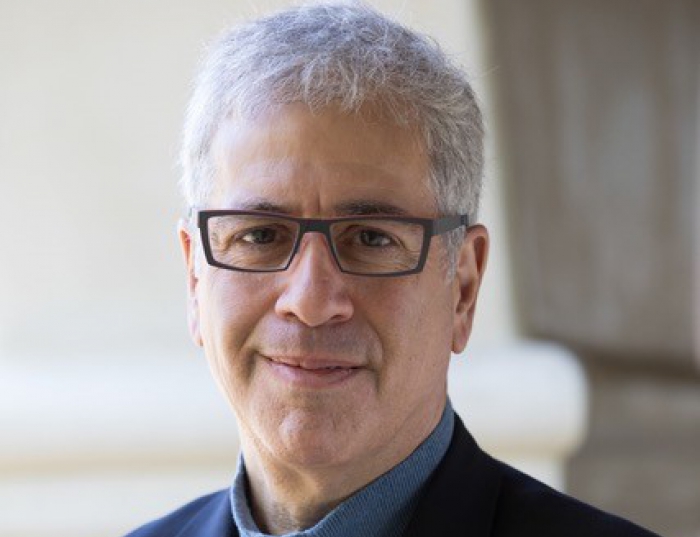
Michael J. Ostacher, MD, MPH
Positions
- Professor - University medical Line, Psychiatry and Behavioral Sciences, Stanford University
Education & Training
- MD, Vanderbilt University School of Medicine MPH, Harvard University School of Public Health, Health Care Management
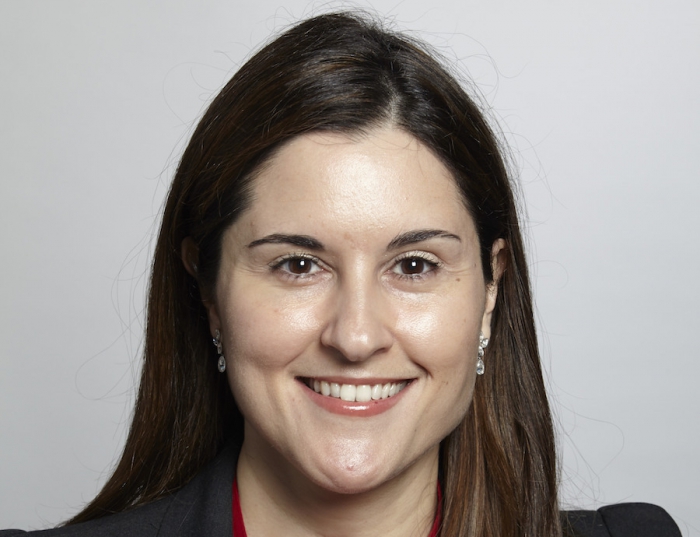
Mercedes Perez-Rodriguez, MD, PhD
Positions
- Assistant Professor of Psychiatry, Icahn School of Medicine at Mount Sinai
- Director, Medical Student Clerkship
- Associate Director, Medical Student Education
- Assistant Training Director for Research
- Medical Director and Director of Research Training, Psychosis Research Program (Critical Connections)
- Social Cognition Section Co-Chief, Center for Affective Neuroscience
Dr. Perez’s work, funded by the NIH, the CDC, the Brain and Behavior Research Foundation (NARSAD), the VA MIRECC, and industry collaborations, aims to elucidate the neurobiological underpinnings of risk and resilience to psychosis spectrum and trauma-related disorders, with a focus on cognition and social cognition. The goal of Dr. Perez’s lab is to develop and test new treatments for psychosis spectrum and trauma-related disorders informed by the neurobiology of the cognitive and social cognitive impairments commonly present in these disorders.
Dr. Perez has authored or co-authored over 100 publications, including more than 70 papers in in peer-reviewed journals and 15 book chapters.
As Assistant Training Director for Research and Director of the Medical Student Clerkship, Dr. Perez plays a key role in educating and mentoring medical students and residents at Mount Sinai. She co-directs the NIMH R25-supported Combined Psychiatry Residency and PhD Program and the Physician-Scientists Psychiatry Residency Research Track at Mount Sinai (https://icahn.mssm.edu/education/residencies-fellowships/list/msh-psychiatry-residency/research-tracks).
Her commitment to training the next generation of physician-scientists has been recognized with her appointment to the AAMC Committee on Creating a Physician-Scientist Training and Career Development Home. Dr. Perez is a Friedman Brain Institute Research Scholar and a Faculty Scholar at Mount Sinai's Center for Multicultural and Community Affairs, which focuses on fostering diversity in our clinical and research workforce.
Dr. Perez is a Fellow Member of the American Psychiatric Association, a Member of the American College of Psychiatrists, an Associate Member of the American College of Neuropsychopharmacology (ACNP), and an elected member of the board of directors of the American Society of Hispanic Psychiatry.

Noah S. Philip, MD
Positions
- Professor of Psychiatry and Human Behavior, Alpert Medical School of Brown University
- Founding Section Chief of Psychiatric Neuromodulation, Providence VA Medical Center
- Lead for Mental Health Reseawrch, VA RR&D Center for Neurorestoration and Neurotechnology
Education & Training
- MD with Distinction in the Study of Biomedical Ethics, Alpha Omega Alpha, Albany Medical College, 2005
- T32 Research Fellow, Brown University, 2009
- Neuromodulation Fellow, Butler Hospital, 2011

Carolyn Rodriguez, MD, PhD
Positions
- Professor, Psychiatry and Behavioral Sciences, Stanford University School of Medicine
- Associate Dean for Academic Affairs, Stanford University School of Medicine
- Director, Translational Therapeutics/Rodriguez Lab, Stanford University
- Director, Translational OCD Research Program, Stanford University
- Director, Stanford Hoarding Disorders Research Program, Stanford University
Education & Training
- MD, Harvard Medical School, Medicine
- PhD, Harvard Medical School, Neuroscience, Genetics
Dr. Carolyn Rodriguez is Associate Dean for Academic Affairs, Stanford University School of Medicine and a Consultation-Liaison Psychiatrist at the Palo Alto Veterans Affairs. As the Director of the Translational Therapeutics Lab and Professor in the Department of Psychiatry and Behavioral Sciences, Dr. Rodriguez leads studies investigating the brain basis of severe mental disorders. Her landmark clinical trials pioneer rapid-acting treatments for illnesses including Obsessive-Compulsive Disorder (OCD) and related disorders. Her NIH-, foundation-, and donor-funded mechanistic and clinical efficacy studies span targeted glutamatergic and opioid pathway pharmacotherapy, noninvasive brain stimulation, psychotherapy and suicide prevention. She is co-author of “Hoarding Disorder: A Comprehensive Clinical Guide,” published August 2022 by APA Publishing.
Dr. Rodriguez also serves as Deputy Editor of The American Journal of Psychiatry, member of the Research Council of the American Psychiatric Association, member of Brain & Behavior Research Foundation Scientific Council, member of the American Foundation for Suicide Prevention Advisory Group, and Scientific and Clinical Advisory Board member of the International OCD Foundation. She has won several national awards, including the Presidential Early Career Award for Scientists and Engineers (PECASE). The PECASE recognizes investigators who are pursuing bold and innovative projects and is considered one of the highest honors in scientific research. Carolyn presented her research at the World Economic Forum in Davos and Fortune Brainstorm Health 2022 and her work has been highlighted by organizations including NPR, PBS, New York Times, ABC News, NBC News, Newsweek, Fortune, and Time.com. She contributes articles to Harvard Business Review and Huffington Post to share scientific findings with the public.
Carolyn received her B.S. in Computer Science from Harvard University, followed by an M.D. from Harvard Medical School-M.I.T. and a Ph.D. in Neuroscience and Genetics from Harvard Medical School. Born in San Juan, Puerto Rico, she now lives with her husband and three children in Palo Alto.

Joshua Roffman, MD
Positions
- Associate Professor, Department of Psychiatry, Harvard Medical School
- Co-Director, Mass General Neuroscience
- Co-Director, MGH Division of Psychiatric Neuroimaging, Massachusetts General Hospital
- Editor in Chief, Harvard Review of Psychiatry
Education & Training
- MMSc, 2010, Harvard Medical School, Clinical Investigation
- MD, 2001, University of Maryland School of Medicine, Medicine

Andrea Schneider, JD
Positions
- Professor of Law and Director of the Kuhn Program Conflict Resolution, Yeshiva Uiversity Cardazo Law School, New York, NY
Education & Training
- JD, Harvard Law School
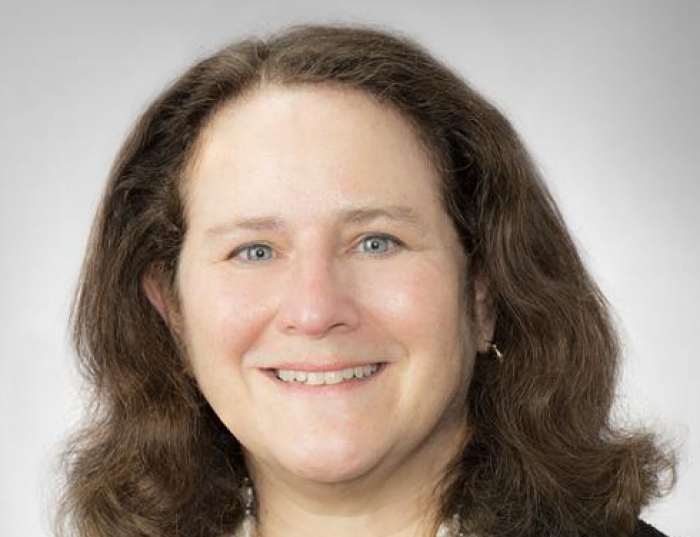
Holly Swartz, MD
Positions
- Professor of Psychiatry, Department of Psychiatry, University of Pittsburgh School of Medicine, and Western Psychiatric Institute and Clinic, Pittsburgh, PA
- Director, Center for Advanced Psychotherapy, UPMC Western Psychiatry Hospital
- Medical Director, Depression and Manic Depression Prevention Program, UPMC Western Psychiatric Hospital
Education & Training
- MD, 1990, Albert Einstein College of Medicine, Bronx, NY

Holly Swartz, MD
Positions
- Associate Professor of Psychiatry and Biostatistics, University of Pittsburgh, Pittsburgh PA
Education & Training
- PhD, Biostatistics, University of Pittsburgh

Leanne Williams, PhD
Positions
- Professor of Psychiatry & Behavioral Sciences, Stanford University
- Director of the PanLab for Personalized and Translational Neuroscience, Stanford and Palo Alto MIRECC VISN21
- Director of PTSD Education, VA Palo Alto MIRECC VISN21
- Honorary Professor, Sydney Medical School
Education & Training
- PhD, 1996, Oxford University
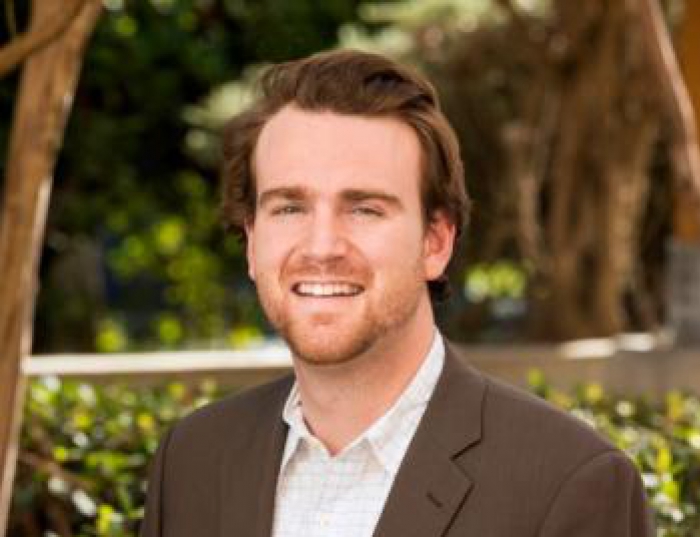
Nolan Williams, MD
Positions
- Assistant Professor - Med Center Line, Psychiatry and Behavioral Sciences - Stanford University
- Director, Stanford Interventional Psychiatry Clinical Research
- Director, Stanford Brain Stimulation Laboratory
Education & Training
- MD, Medical University of South Carolina, Medicine (2008)

Daniel Wolf, MD, PhD
Positions
- Associate Professor, Department of Psychiatry, University of Pennsylvania School of Medicine
- Attending Psychiatrist, Department of Psychiatry, Hospital of the University of Pennsylvania
- Attending Psychiatrist, Department of Psychiatry, Pennsylvania Hospital
Education & Training
- PhD, Yale University School of Medicine, Neuroscience
- MD, Yale University School of Medicine
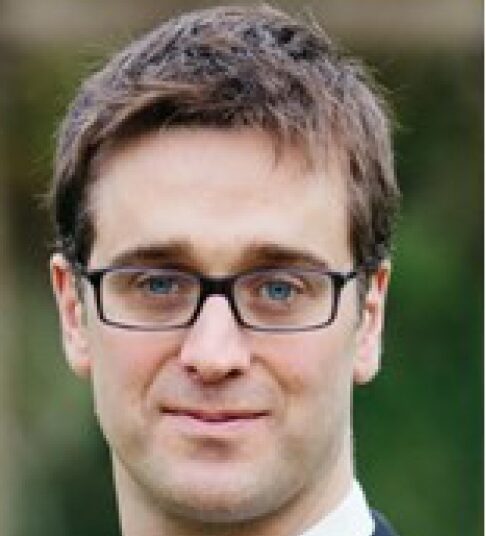
Josh Woolley, MD, PhD
Positions
Associate Professory, Psychiatry, UCSF Weill Institute for Neurosciences
Education & Training
- MD, 2007, University of California, San Francisco
- PhD, 2005, University of California, San Francisco

Josh Woolley, MD, PhD
Positions
Professor, Psychiatry
UCSF Weill Institute for Neurosciences
Education & Training
| Reed College | BA | 1996 | Biology |
| University of California, San Francisco | M.D. | 2003 | Medicine |
| University of California, San Francisco | MAS in Clinical Research | 2015 | Implementation Science Track |
| Columbia University | Residency | 2007 | Psychiatry |
| University of California, San Francisco, CA | 2017 | Diversity, Equity, and Inclusion Champion Training |
Dr. Mangurian is the Vice Dean for Faculty & Academic Affairs at UCSF School of Medicine. She is also a Professor of Psychiatry & Behavioral Sciences and Epidemiology & Biostatistics. Dr. Mangurian is the Director of the UCSF ARCHES (Advancing the Research Careers of Historically Excluded Scholars) Program (https://archesprogram.ucsf.edu/). She is also Director of the UCSF Program of Research on Mental health Integration among Underserved and Minority populations (PReMIUM) which is based at CVP (http://integration.ucsf.edu/).
Dr. Mangurian is a community psychiatrist whose NIH-funded research program focuses on improving diabetes screening and HIV care of people with severe mental illness (e.g., schizophrenia, bipolar disorder), particularly among underserved minority populations.Dr. Mangurian has a successful track record in implementation in the public sector, most notably being her work as a Special Coordinator for the Medical Director of the New York State Office of Mental Health to implement health screening of 15,000 outpatients served within the New York State public mental health system (Mangurian et al., 2010). With her prior NIDDK-funded grant (Diabetes screening and care received by the mentally ill in an integrated system), Dr. Mangurian has partnered with Kaiser Permanente Northern California Division of Research to leverage Kaiser’s tremendous EHR to examine patient-, provider- and clinic-level variables that might influence diabetes care in this vulnerable population. Her current NIMH-funded R01 focuses on improving the HIV care of people with schizophrenia nationally.
In addition to her research experience, Dr. Mangurian is the Executive Director and co-Founder of the UCSF Public Psychiatry Fellowship (https://ppf.ucsf.edu/). This was the first Public Psychiatry Fellowship in California, and the only one nationally to have a formal mental health services research component. Dr. Mangurian also serves as the Chair of the American Psychiatric Association’s Council on Minority Mental Health and Health Disparities.
Dr. Mangurian received her BA in Biology from Reed College. She graduated AOA from the UCSF School of Medicine, and completed her Psychiatry Residency and Chief Residency at Columbia University. She also completed the Columbia University Public Psychiatry Fellowship. Dr. Mangurian joined the faculty at UCSF Department of Psychiatry at Zuckerberg San Francisco General in 2009. She joined the faculty of the UCSF Center for Vulnerable Populations in 2014, and the faculty of the Philip R. Lee Institute for Health Policy Studies in 2018. She received a UCSF Master's Degree in Clinical Research, with Implementation Science Track coursework, in 2015.

